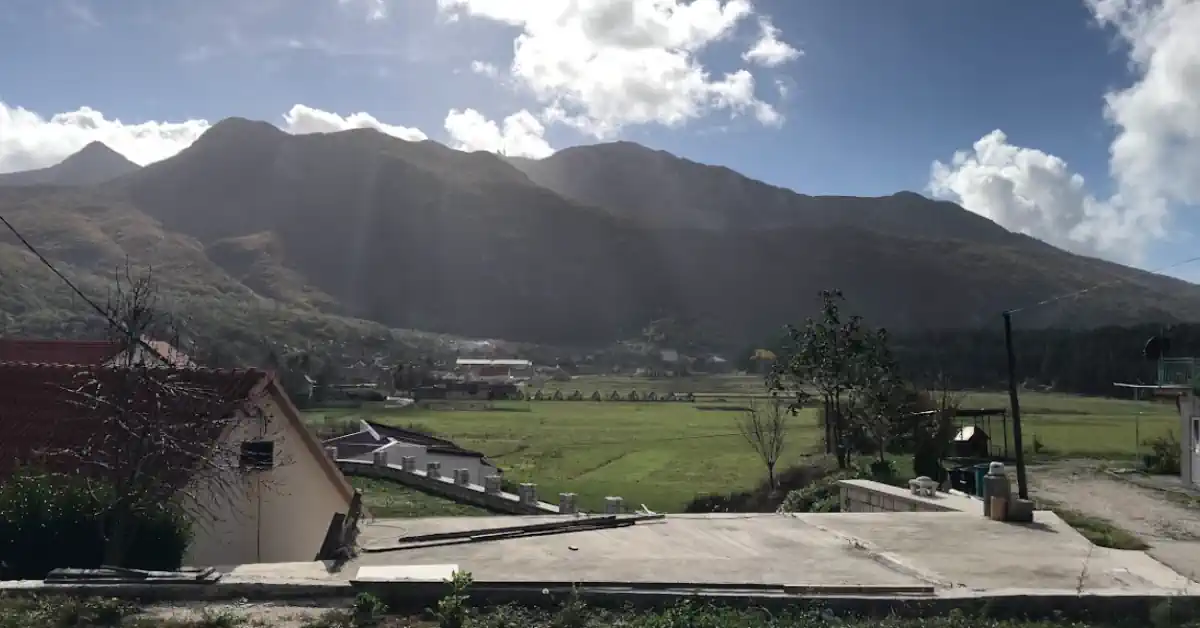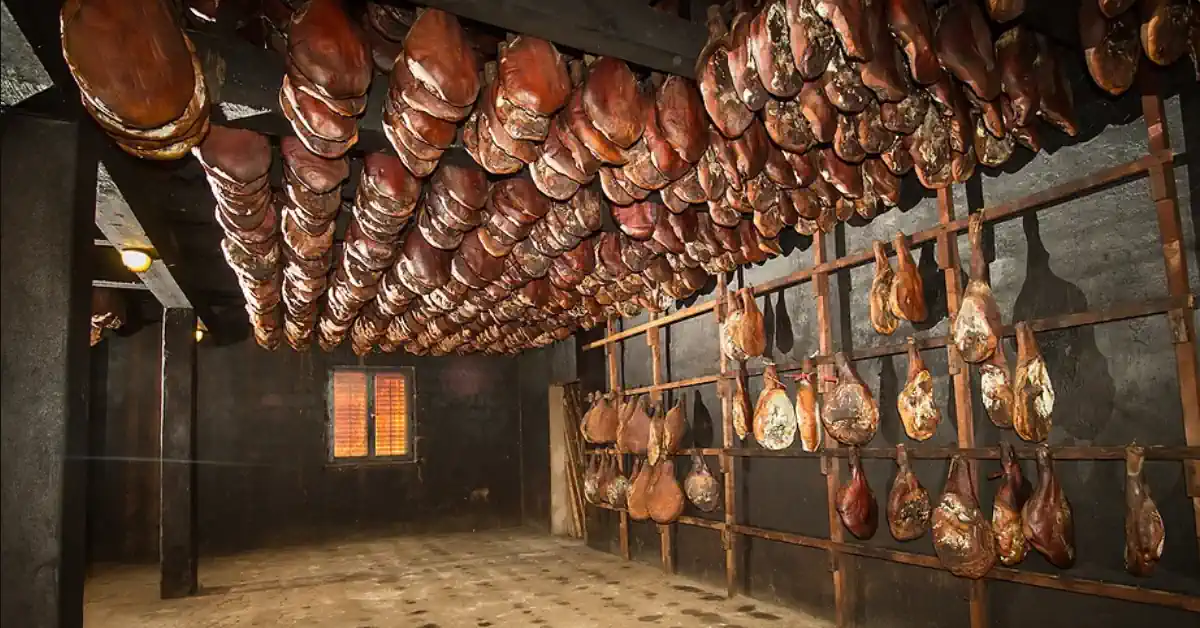
Njegusi Prosciutto
Its intense aroma with sweet and spicy touches immediately lets you know that this salt-cured ham is not ordinary. The prosciutto is exclusively produced in Njegusi, a small village north of Kotor and a protected designation of origin. It sits on the slopes of Mount Lovcen and is heavily exposed to the Bora wind, especially during winter.
The Bora carries dry air from Eastern Europe which is an essential component in getting a high-quality prosciutto. Another one is first-rate meat taken only from the hind legs and dry-cured according to a centuries-old technique. Production begins after the carefully selected hams are rubbed with coarse sea salt and left to cure for 4 -5 weeks.
It is then pressed for 2 – 3 additional weeks to remove any excess moisture. When the pressing is finished, the prosciutto is washed and hung to dry in the cool mountain breeze for three months. When it is smoked instead, the process is shortened to 30 – 40 days.
In Milorad Popovic’s small shop, the prosciutto is hung with rope from wooden racks while Turo dries their prosciutto on metal racks. When humidity levels are high, the beech-fired smoker oven runs nonstop at low and constant temperatures. On clear and sunny days, running the oven for a couple of hours is sufficient.
Drying is followed by a 6-month maturing process which begins by treating the ham with chili powder to keep moths and other insects away. It is then placed in a dark and temperature-controlled room (12 – 16 ºC) with low humidity. The cycle takes one year to complete from curing to cutting the first slices.
The prized result is delectable notes of salty-savory ham, marbled with streaks of rich fat, served best with local Njegusi Cheese, freshly baked bread, and a glass of Vranac Wine. Njegusi Prosciutto is similar to its Italian counterparts but has a more savory-salty aroma.
The Montenegrins like their ham thick-sliced and salty unlike in Italy and Spain where they proud themselves on slicing it as thin as possible. They also like it smokey with a woody flavor yet soft and melting which sounds like an oxymoron but it isn’t.

